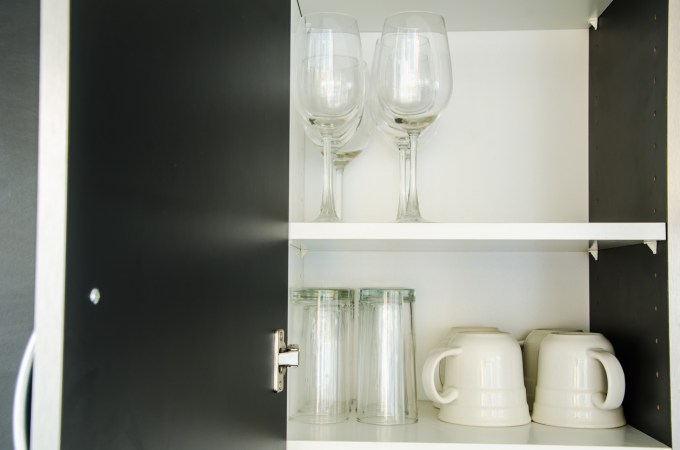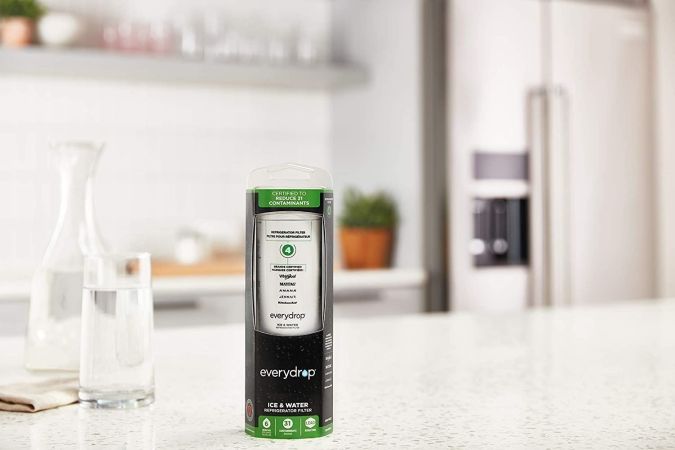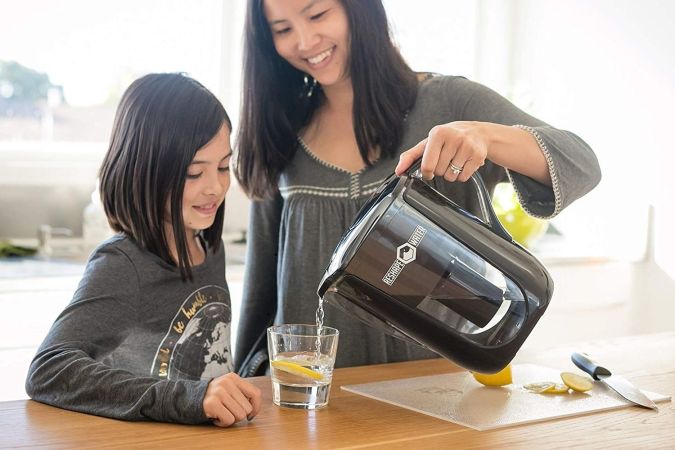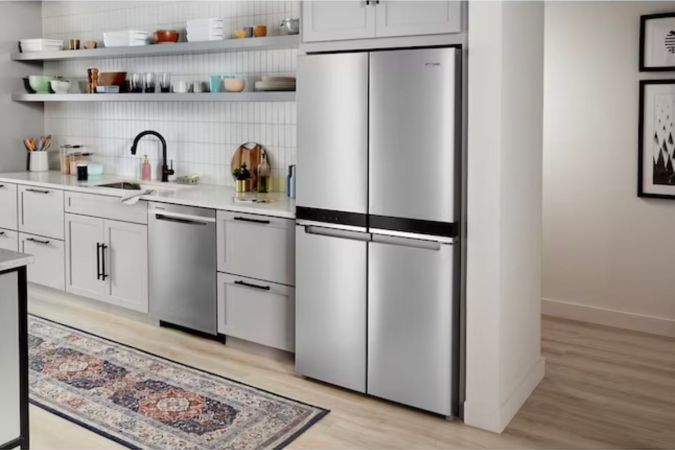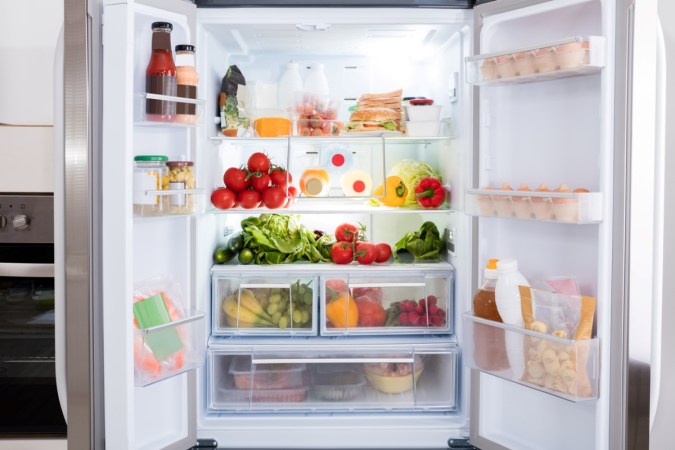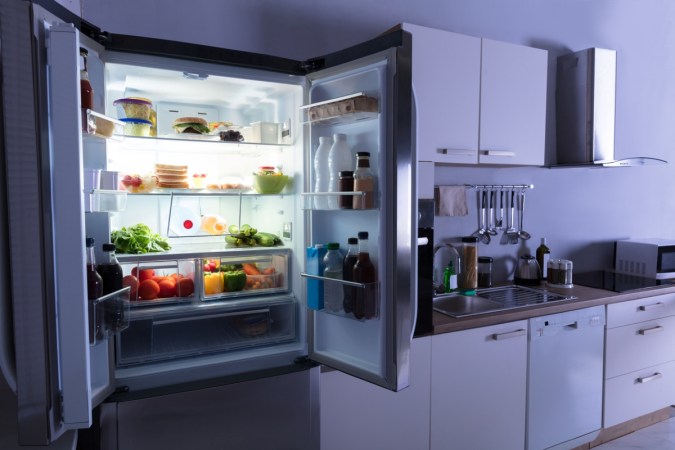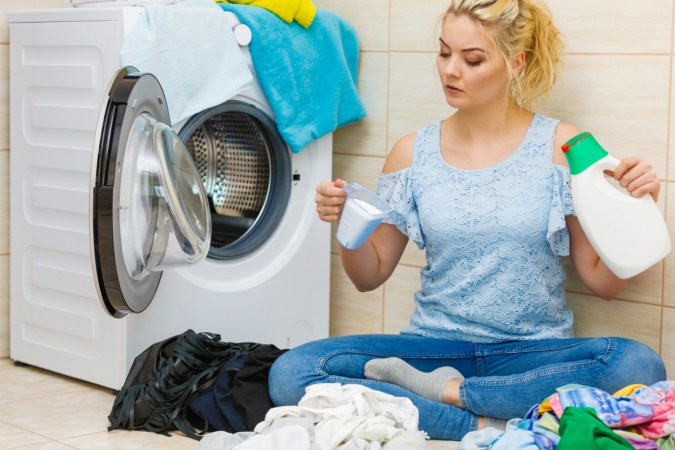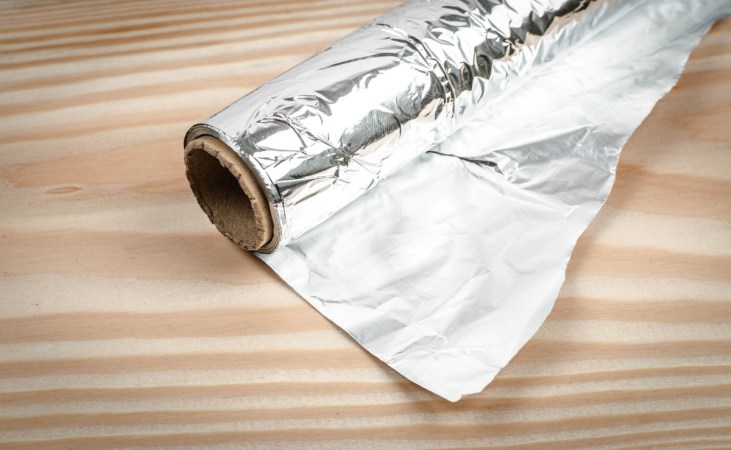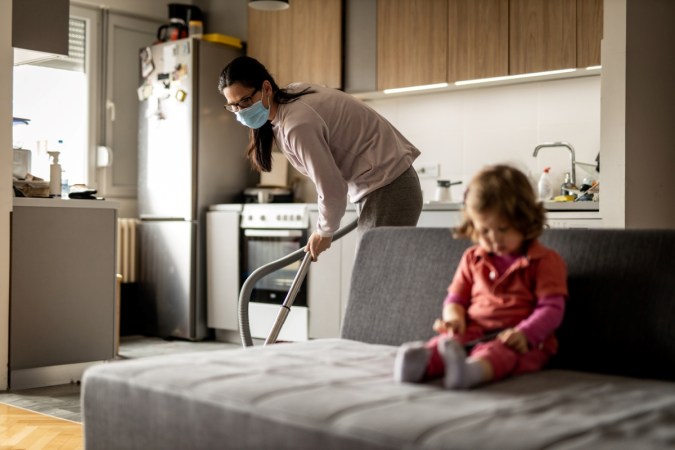We may earn revenue from the products available on this page and participate in affiliate programs. Learn More ›
Eggs are a staple found in most kitchens. We scramble them, fry them, hard-boil them, use them to make various baked goods, and so much more. However, if you aren’t storing your eggs properly, they may go bad before you have a chance to use them. Even worse, they may develop bacteria, putting you and the others in your home at risk for a foodborne illness. Learning how to store your eggs properly can help you avoid these potential problems.
RELATED: 16 Foods You Should Never Store in Your Pantry
1. Store eggs in the refrigerator.
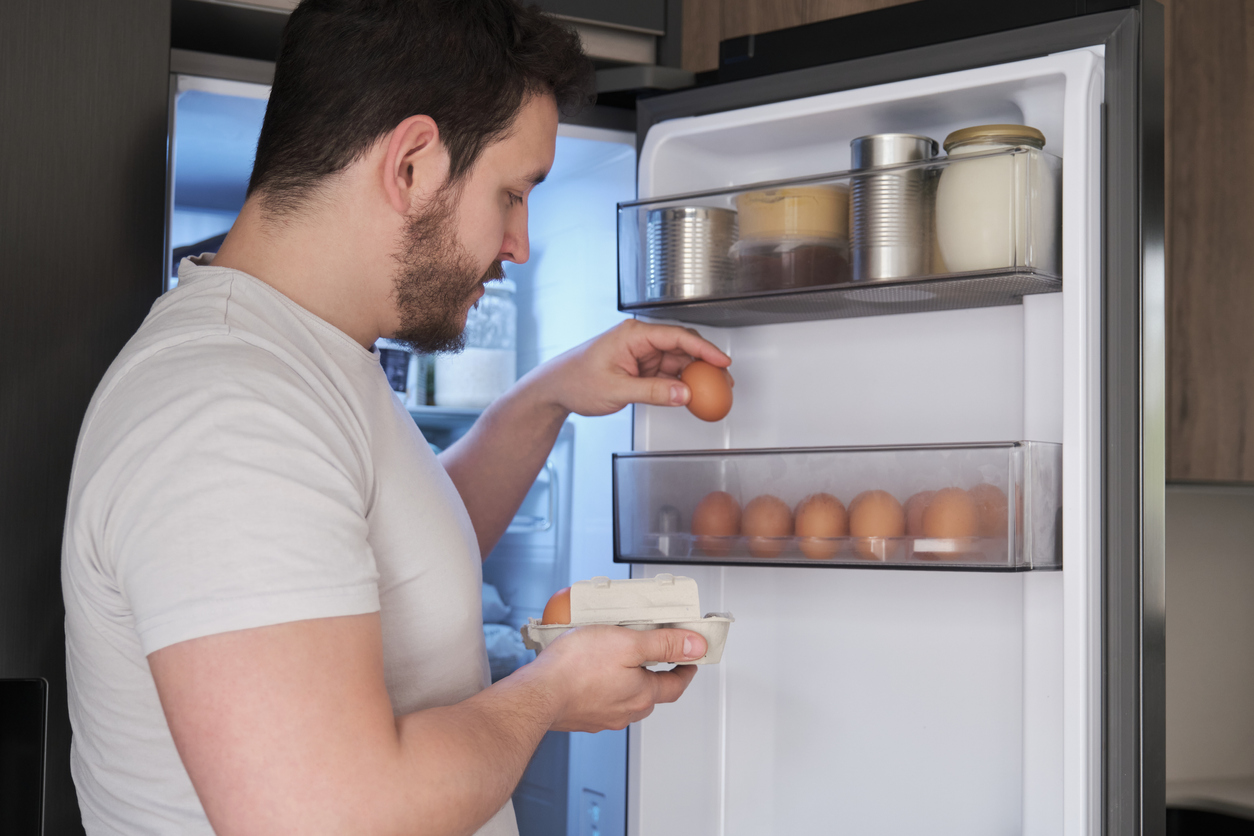
Unwashed fresh eggs from your backyard flock are technically safe to leave at room temperature for two to four weeks. However, if you refrigerate them, they’ll last for much longer—up to two or three months. Unless you’re planning to use the eggs right away, you’re probably better off keeping them in the fridge.
Store-bought eggs, on the other hand, should always be stored in the refrigerator (at or below 40 degrees Fahrenheit). These eggs are washed (or even pasteurized) before being packaged. This process removes bacteria on the shells, but at the same time breaks down the natural coating on the shell. This makes it more porous and means that if bacteria gets inside the egg, then it would spoil if not kept in the refrigerator. Furthermore, the eggs you purchase from the grocery store are sold refrigerated, and the United States Department of Agriculture explains that if a refrigerated egg is left out at room temperature, it may sweat. This can encourage the growth of bacteria. Avoid leaving eggs out at room temperature for more than two hours.
RELATED: 8 Things You Should Keep in Your Fridge (But Shouldn’t Eat)
2. Store eggs in a carton with their large end up.
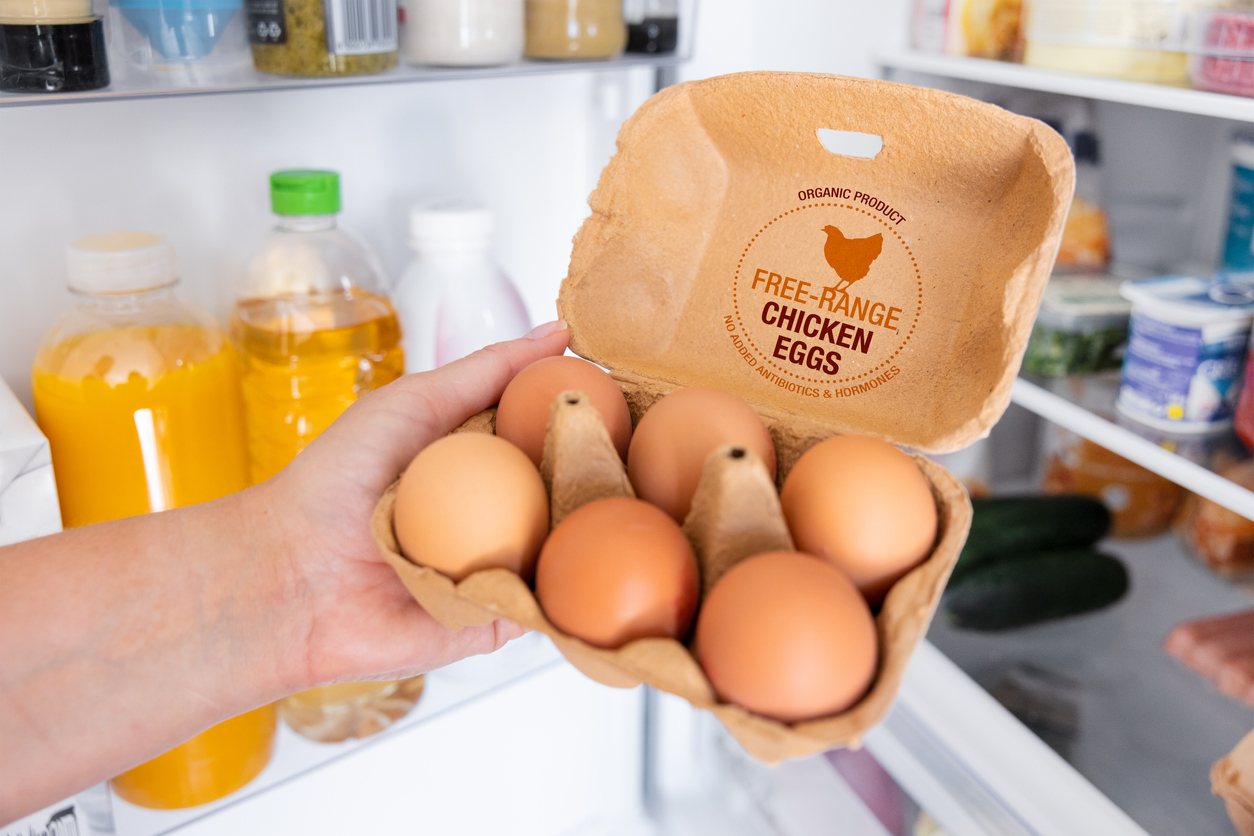
The best way to store eggs—both store-bought and fresh—is in an egg carton. Egg cartons are designed to protect eggs from getting bumped or cracked. They also provide cover for the eggs to ensure they don’t absorb other odors in the fridge. When placing eggs in the compartments of the carton, the large end should face up. Positioning them in such a manner helps ensure that the yolk stays in the center of the egg, which is an aesthetic consideration with certain preparations, such as fried or deviled eggs.
RELATED: Solved! How to Freshen Up a Smelly Fridge
3. Don’t wash eggs before storing them.

Washing eggs is not necessary—and it can even increase the chances of introducing bacteria into the egg. Store-bought eggs are washed before being sent to the store. But, as mentioned earlier, this can remove some of the egg’s protective coating and make it more susceptible to bacteria. When you wash the egg, you could end up pushing bacteria into the egg through its porous shell.
It is also not necessary to wash fresh eggs, and they should never be washed before storing them. The bloom, or natural coating, covering these eggs helps them resist contamination from bacteria. Washing the eggs will remove the bloom and make it more likely that they will get contaminated and become unsafe to eat.
RELATED: The Top 10 Germiest Spots in Your Home, According to Science
4. Avoid keeping and using eggs that are cracked.

When you’re picking up eggs at the grocery store, it is important to open the carton and make sure none of the eggs are cracked. Cracks on the surface of an egg allow bacteria to enter into the yolk or egg white, so avoid purchasing them or toss them ASAP. Similarly, compost any cracked eggs you collect from your backyard coop. If any of the eggs you have already inspected get bumped or cracked later (if the carton gets bumped in the fridge, etc.), these can still be used. However, you’ll want to crack them right away, store the egg in an airtight container in the fridge, and cook them within two days.
RELATED: 6 Foods You Should Never Vacuum Seal
5. If freezing, never leave the eggs in their shells.

If you don’t think you’ll be able to use up all the eggs you have, you can freeze them for later use. However, you don’t want to make the mistake of trying to leave the eggs in the shell to freeze them. Eggs have a high water content, and water expands when it freezes. So, if you place a whole egg in the freezer, the shells will crack as the egg white and yolk expand.
The right way to freeze eggs is to crack them into a bowl first. Whisk the eggs and consider adding in a little salt to prevent the yolks from getting too thick once frozen. Then, pour them into a freezer-safe container, like a muffin pan. Once frozen, move the eggs into an airtight container or freezer-safe bag and keep them in the freezer for up to one year.




